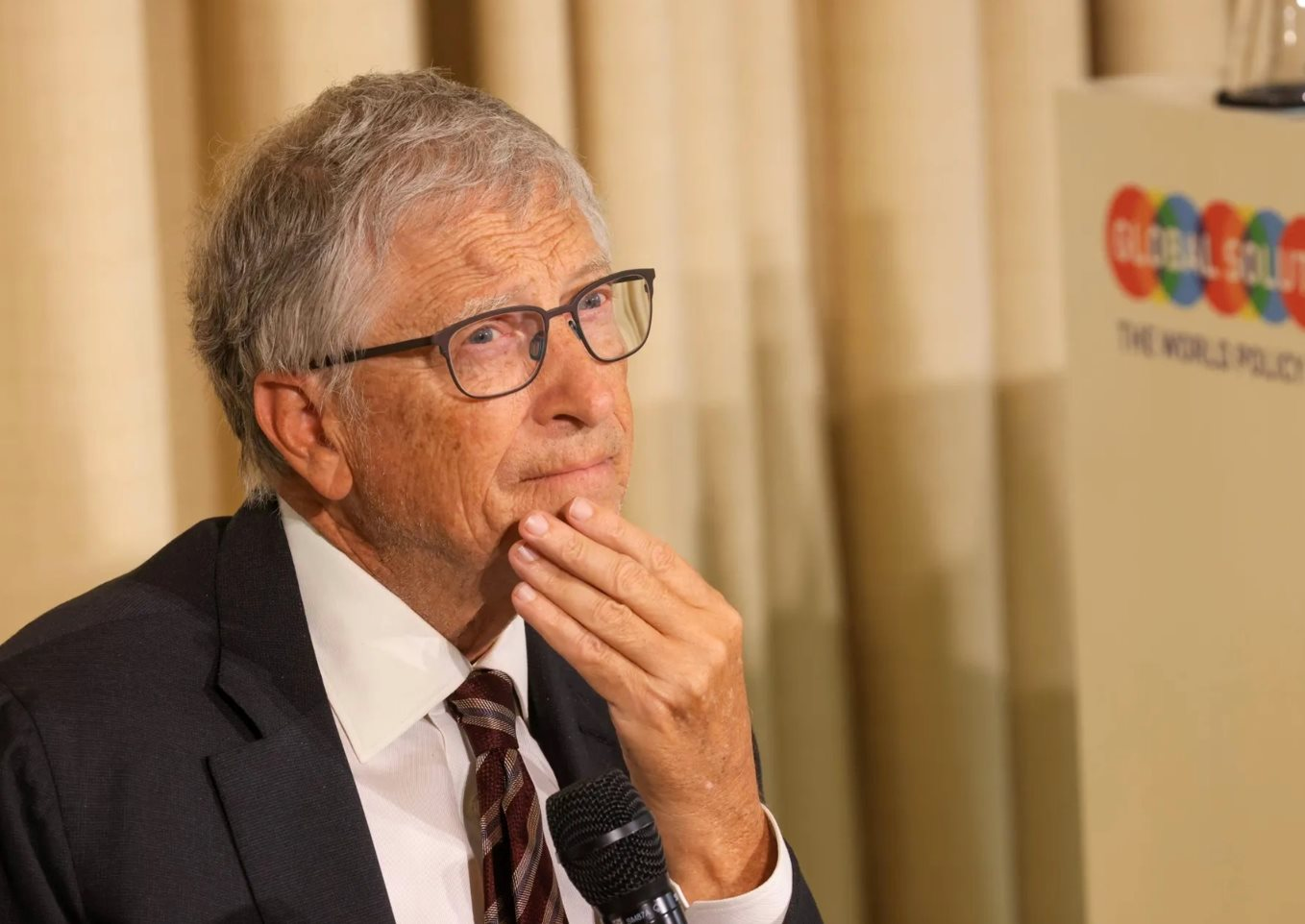:quality(75)/bill_gates_la_ai_4317e1919a.png)
In a notable partnership aimed at preserving clean energy initiatives, Bill Gates recently visited Utah to support Senator John Curtis in his ongoing efforts to secure clean energy tax credits and promote domestic energy production.
The two figures toured the Cape Station, a geothermal site developed by energy company Fervo Energy in the southwest region of Utah.
This visit came at a crucial time as discussions in Congress about the future of federal tax credits for renewable energy projects, including geothermal, are at risk.
Senator Curtis, a Republican from Utah, has been advocating for the preservation of tax credits that incentivize alternative energy sources like solar, wind, and geothermal.
These credits have been instrumental in fostering the growth of renewable energy across the U.S. However, the current tax bill proposed under President Donald Trump includes provisions to cut many of these credits, a move that threatens to slow down progress in clean energy initiatives.
Curtis, who has long been a proponent of expanding energy production and reducing dependence on fossil fuels, sees the Cape Station project as an exemplary step forward in the state’s energy future.
"Utah is at the forefront of energy innovation, and the Cape Station Geothermal project in Beaver is a powerful example of that progress," Curtis said in a statement.

He added that geothermal energy would be a critical part of the future of clean, reliable, and affordable energy in the United States.
Fervo Energy, the green energy company behind the Cape Station project, is investing more than $2 billion into the geothermal site, which is expected to become the world’s largest enhanced geothermal project once operational.
This ambitious project is being backed by Breakthrough Energy Ventures, an investment firm founded by Gates in 2015 to accelerate sustainable energy technologies.
Gates has long been an advocate for increased investment in geothermal energy, recognizing it as a crucial source of reliable, low-carbon power.
"Enhanced geothermal is one of the most promising solutions for delivering reliable, low-carbon power, especially as demand for affordable energy grows," Gates said in a press release.
He further emphasized the importance of continued investment, stating that Breakthrough Energy’s early investment in Fervo was motivated by a belief in the company’s vision and its potential to make geothermal energy a key player in the global energy transition.

While the Cape Station project is expected to be fully operational by 2028, the timeline for its completion could be delayed if Congress moves forward with repealing the clean energy tax credits, as some Republicans are pushing for.
These tax credits, part of the Inflation Reduction Act, have been vital in incentivizing renewable energy production, including geothermal, by providing subsidies to companies and households that invest in these technologies.
Without these incentives, the Cape Station project, along with other similar ventures, may be forced to wait until the next decade to come online.
Tim Latimer, CEO and co-founder of Fervo Energy, spoke about the crucial role of these tax credits in determining the speed of progress. "The difference is, will we bring gigawatts on the grid this decade or will it be next decade?" he asked, highlighting the urgency of ensuring that these credits remain in place.
For Gates, the push for greater federal support for geothermal energy is not just about the potential financial returns, but about providing a reliable and low-carbon energy source that can help meet growing global demand for clean energy.
However, the issue is far from straightforward, as some conservative groups, particularly within the Republican Party, argue that federal subsidies for clean energy drive up costs for consumers and reduce the reliability of power systems.
These concerns have led to a strong push from some Republicans to repeal the tax credits included in the Biden administration's signature clean energy legislation, the Inflation Reduction Act.

Despite these challenges, Curtis and other advocates of clean energy are working to preserve these policies, particularly those that promote geothermal energy, nuclear power, and net-zero emissions.
Geothermal energy, in particular, has garnered bipartisan support due to its ability to provide continuous and reliable power.
Unlike wind and solar energy, which have often been criticized by Republicans for their intermittency, geothermal is viewed as a stable, consistent source of renewable energy.
Moreover, geothermal energy benefits from the fact that most of the resources required to produce it are located on federal land, making it a subject of bipartisan interest.
Both Republicans and Democrats have worked together in recent years to create legislation that expands access to these resources, acknowledging the potential of geothermal energy to contribute to the nation’s clean energy goals.
In the coming weeks, the Senate will vote on the reconciliation package, and Republican leaders are pushing to get the bill to President Trump’s desk before the Fourth of July.
This vote will likely be one of the most critical moments in determining the future of clean energy policy in the United States.
The outcome of the vote will significantly affect the fate of projects like Cape Station, which rely on continued tax incentives to succeed.

As the debate over the future of clean energy unfolds in Washington, it’s clear that Gates’ support for projects like Cape Station represents not only a personal investment in the future of energy but also a strategic move to push forward his vision of sustainable, low-carbon energy.
Whether or not Congress will maintain the tax credits needed to keep these projects on track remains to be seen, but for now, the Cape Station geothermal project stands as a powerful symbol of the progress that can be made when private and public sectors collaborate for the common good.
In conclusion, Bill Gates’ visit to Utah and his support for the Cape Station geothermal project highlight the ongoing efforts to secure the future of clean energy in the U.S.
Despite the opposition from some quarters of Congress, Gates’ commitment to advancing renewable energy technologies, particularly geothermal, remains a key part of his philanthropic work.
The success or failure of this project and others like it will depend heavily on the political decisions made in the coming months, making the fight over clean energy tax credits one of the most important battles in the country’s energy future.


